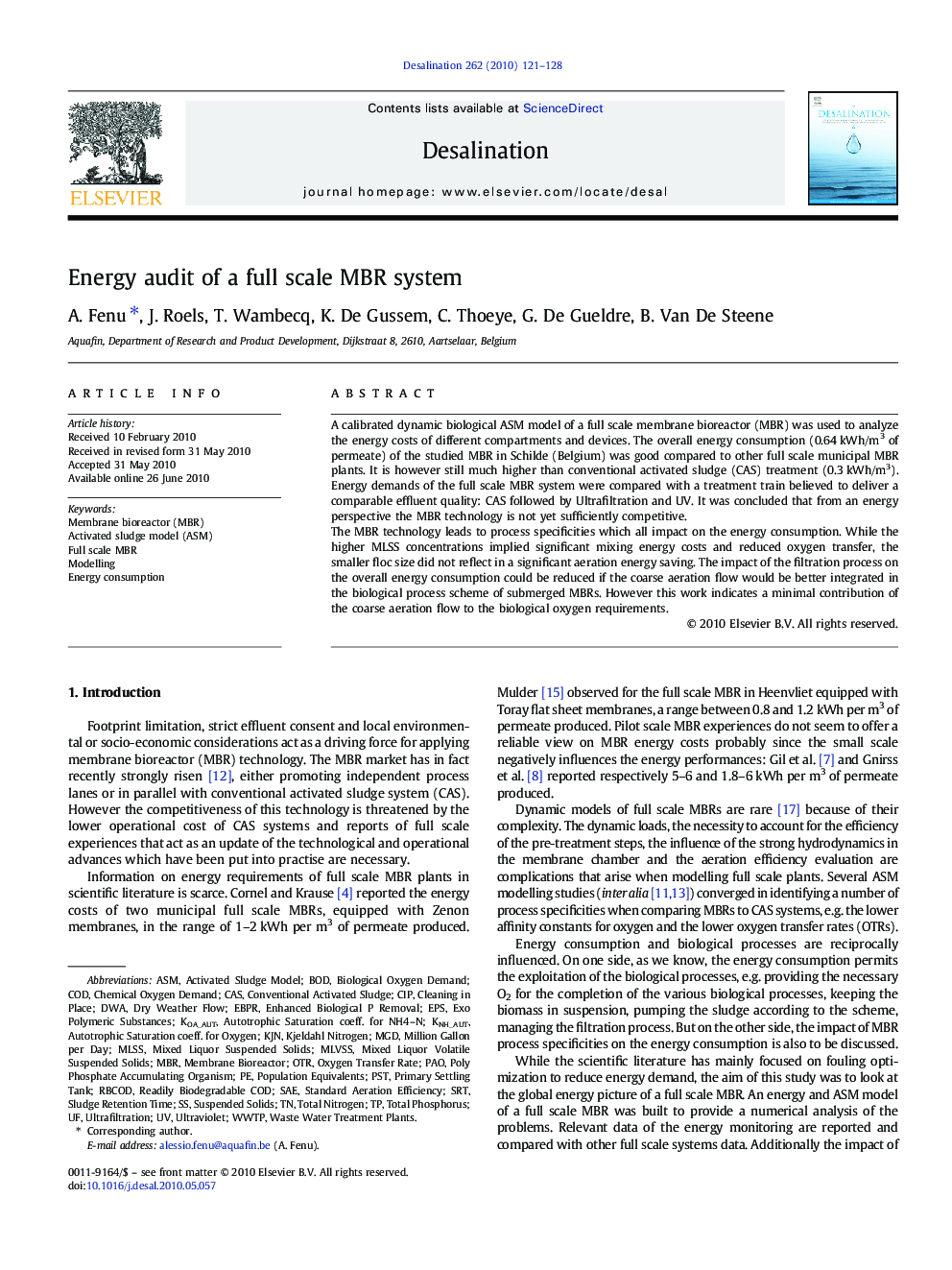| Article ID | Journal | Published Year | Pages | File Type |
|---|---|---|---|---|
| 625540 | Desalination | 2010 | 8 Pages |
A calibrated dynamic biological ASM model of a full scale membrane bioreactor (MBR) was used to analyze the energy costs of different compartments and devices. The overall energy consumption (0.64 kWh/m3 of permeate) of the studied MBR in Schilde (Belgium) was good compared to other full scale municipal MBR plants. It is however still much higher than conventional activated sludge (CAS) treatment (0.3 kWh/m3). Energy demands of the full scale MBR system were compared with a treatment train believed to deliver a comparable effluent quality: CAS followed by Ultrafiltration and UV. It was concluded that from an energy perspective the MBR technology is not yet sufficiently competitive.The MBR technology leads to process specificities which all impact on the energy consumption. While the higher MLSS concentrations implied significant mixing energy costs and reduced oxygen transfer, the smaller floc size did not reflect in a significant aeration energy saving. The impact of the filtration process on the overall energy consumption could be reduced if the coarse aeration flow would be better integrated in the biological process scheme of submerged MBRs. However this work indicates a minimal contribution of the coarse aeration flow to the biological oxygen requirements.
